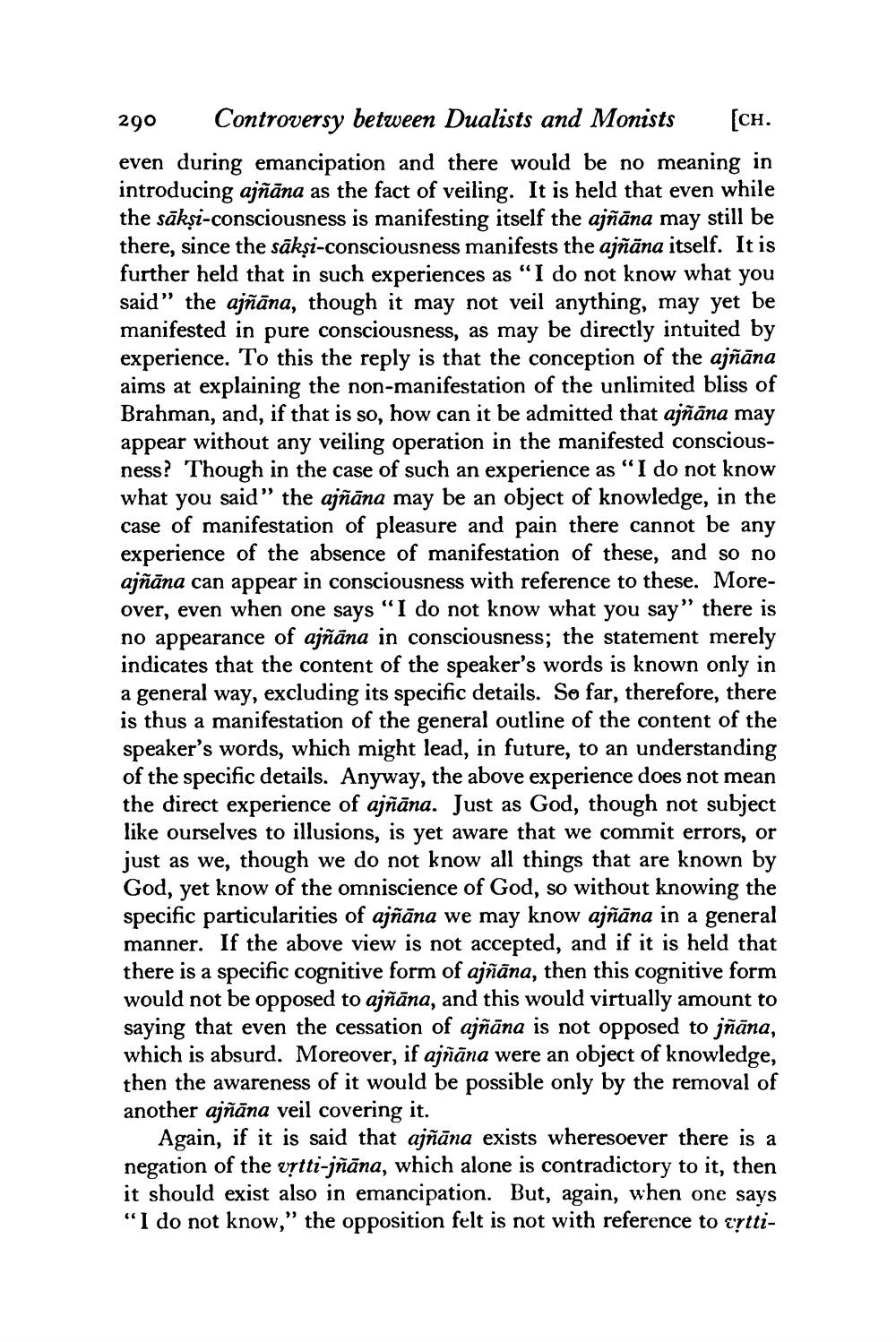________________
290 Controversy between Dualists and Monists [CH. even during emancipation and there would be no meaning in introducing ajñāna as the fact of veiling. It is held that even while the sākṣi-consciousness is manifesting itself the ajñāna may still be there, since the sāksi-consciousness manifests the ajñāna itself. It is further held that in such experiences as “I do not know what you said" the ajñāna, though it may not veil anything, may yet be manifested in pure consciousness, as may be directly intuited by experience. To this the reply is that the conception of the ajñāna aims at explaining the non-manifestation of the unlimited bliss of Brahman, and, if that is so, how can it be admitted that ajñāna may appear without any veiling operation in the manifested consciousness? Though in the case of such an experience as “I do not know what you said” the ajñāna may be an object of knowledge, in the case of manifestation of pleasure and pain there cannot be any experience of the absence of manifestation of these, and so no ajñāna can appear in consciousness with reference to these. Moreover, even when one says “I do not know what you say" there is no appearance of ajnana in consciousness; the statement merely indicates that the content of the speaker's words is known only in a general way, excluding its specific details. So far, therefore, there is thus a manifestation of the general outline of the content of the speaker's words, which might lead, in future, to an understanding of the specific details. Anyway, the above experience does not mean the direct experience of ajñāna. Just as God, though not subject like ourselves to illusions, is yet aware that we commit errors, or just as we, though we do not know all things that are known by God, yet know of the omniscience of God, so without knowing the specific particularities of ajñāna we may know ajñāna in a general manner. If the above view is not accepted, and if it is held that there is a specific cognitive form of ajñāna, then this cognitive form would not be opposed to ajñāna, and this would virtually amount to saying that even the cessation of ajñāna is not opposed to jñāna, which is absurd. Moreover, if ajñāna were an object of knowledge, then the awareness of it would be possible only by the removal of another ajñāna veil covering it.
Again, if it is said that ajñāna exists wheresoever there is a negation of the vrtti-jñāna, which alone is contradictory to it, then it should exist also in emancipation. But, again, when one says "I do not know," the opposition felt is not with reference to ortti




